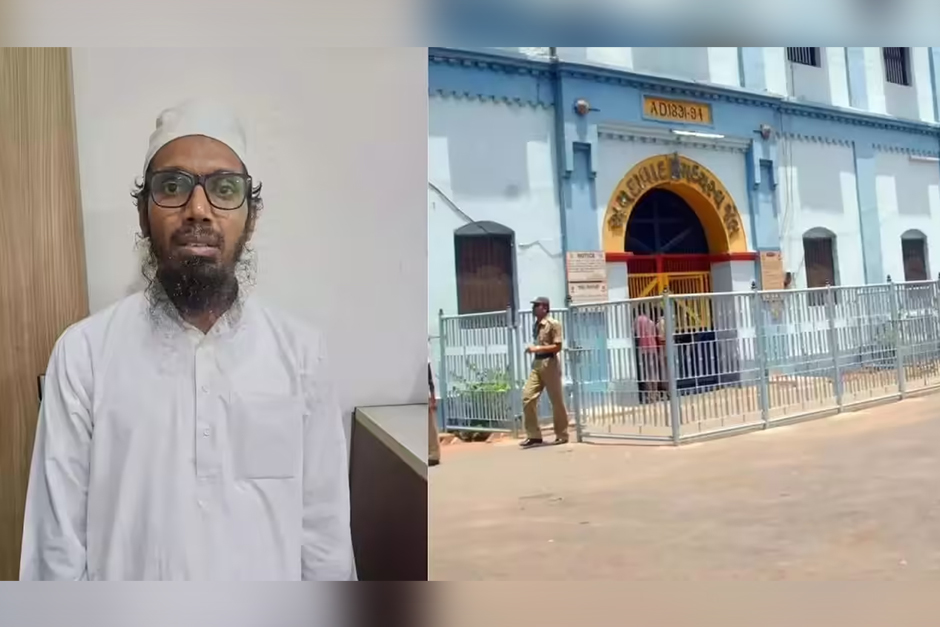In a concerning incident inside Gujarat’s high-security Sabarmati Central Jail, Dr. Syed Jilani, an accused in a high-profile ricin terror plot, was reportedly attacked by three fellow inmates. The assault, which occurred recently, has brought renewed scrutiny to inmate safety and security protocols within Indian correctional facilities, especially for those facing grave charges. Initial reports suggest the attackers were allegedly motivated by an attempt to flaunt their patriotism, adding a complex layer to an already sensitive case.
Assault Inside Sabarmati: Details Emerge
The incident unfolded in a common area of the jail, where Dr. Syed Jilani, currently under judicial custody, sustained injuries following an altercation with three other prisoners. According to jail officials and preliminary investigations, Jilani was reportedly ambushed, leading to a scuffle. While the exact weapon used remains under investigation, sources indicate he was hit multiple times, resulting in visible bruises and minor contusions. He received immediate medical attention from the jail’s infirmary and is reported to be stable.
The three attacking inmates have been identified, and an FIR has reportedly been registered against them under relevant sections of the Indian Penal Code (IPC). Authorities are investigating the precise sequence of events leading up to the assault and the motivations behind it. The alleged “attempt to flaunt their patriotism” by the attackers points towards a potentially communal or nationalistic undertone to the incident, raising serious questions about inmate segregation and the atmosphere within the prison walls.
Immediate Response and Inquiry
Following the attack, jail authorities swiftly intervened to separate the involved parties. An internal inquiry has been initiated to ascertain how such an incident could occur within a facility designed for maximum security. Questions are being raised about surveillance, patrolling, and the efficacy of measures to prevent inter-prisoner violence. Ensuring the safety of all inmates, particularly those accused of sensitive crimes, is a paramount responsibility of the state, and this incident has highlighted potential vulnerabilities in the system.
Dr. Syed Jilani and the Ricin Plot Accusation
Dr. Syed Jilani’s presence in Sabarmati Jail stems from his arrest in connection with a chilling ricin terror plot that garnered national attention. Arrested by the National Investigation Agency (NIA) earlier this year, Jilani is accused of being a key conspirator in a sophisticated scheme to manufacture and deploy ricin, a highly potent biological toxin. The alleged plot involved targeting prominent figures and critical infrastructure, posing a significant threat to national security. Investigators claim to have uncovered substantial evidence, including digital communications and material related to ricin production, linking Jilani to the conspiracy.
The case has been under intense legal scrutiny, with Jilani’s defence maintaining his innocence and alleging wrongful implication. His custody in Sabarmati Jail is part of the ongoing judicial process as the NIA continues its probe and prepares for trial. The gravity of the charges against him naturally places him in a high-risk category within the prison system, making the recent assault even more alarming.
Broader Implications for Inmate Safety and Justice
The attack on Dr. Syed Jilani inside Sabarmati Jail transcends a mere scuffle between inmates; it spotlights the precarious balance between justice, security, and human rights within correctional facilities. For individuals facing serious charges, the state is obligated not only to ensure a fair trial but also to guarantee their physical safety while in custody. An assault, especially one allegedly driven by extra-judicial motives like “patriotism,” undermines the rule of law and the principle of presumed innocence until proven guilty.
Commenting on the incident, a legal expert closely monitoring such cases stated, “While the charges against Dr. Jilani are extremely serious, his safety in state custody is non-negotiable. Such attacks, if indeed motivated by a vigilante sense of patriotism, set a dangerous precedent and indicate a failure in maintaining order and neutrality within our prisons. It can also potentially prejudice the ongoing legal proceedings.” This sentiment underscores the need for robust internal mechanisms to prevent vigilantism and ensure that justice is served through due process, not through intra-mural violence.
Authorities are now tasked with a dual responsibility: thoroughly investigating the attack on Jilani and prosecuting the perpetrators, while simultaneously reinforcing security measures to prevent future occurrences. This incident serves as a stark reminder of the complex challenges faced by India’s correctional system in managing a diverse inmate population, especially those embroiled in cases with nationalistic or communal overtones, ensuring both security and dignity for all under its care.
As the investigations proceed, both into the original ricin plot and the recent jail assault, the spotlight remains firmly on Sabarmati Jail and the broader questions it raises about the sanctity of judicial custody in a charged socio-political environment.




